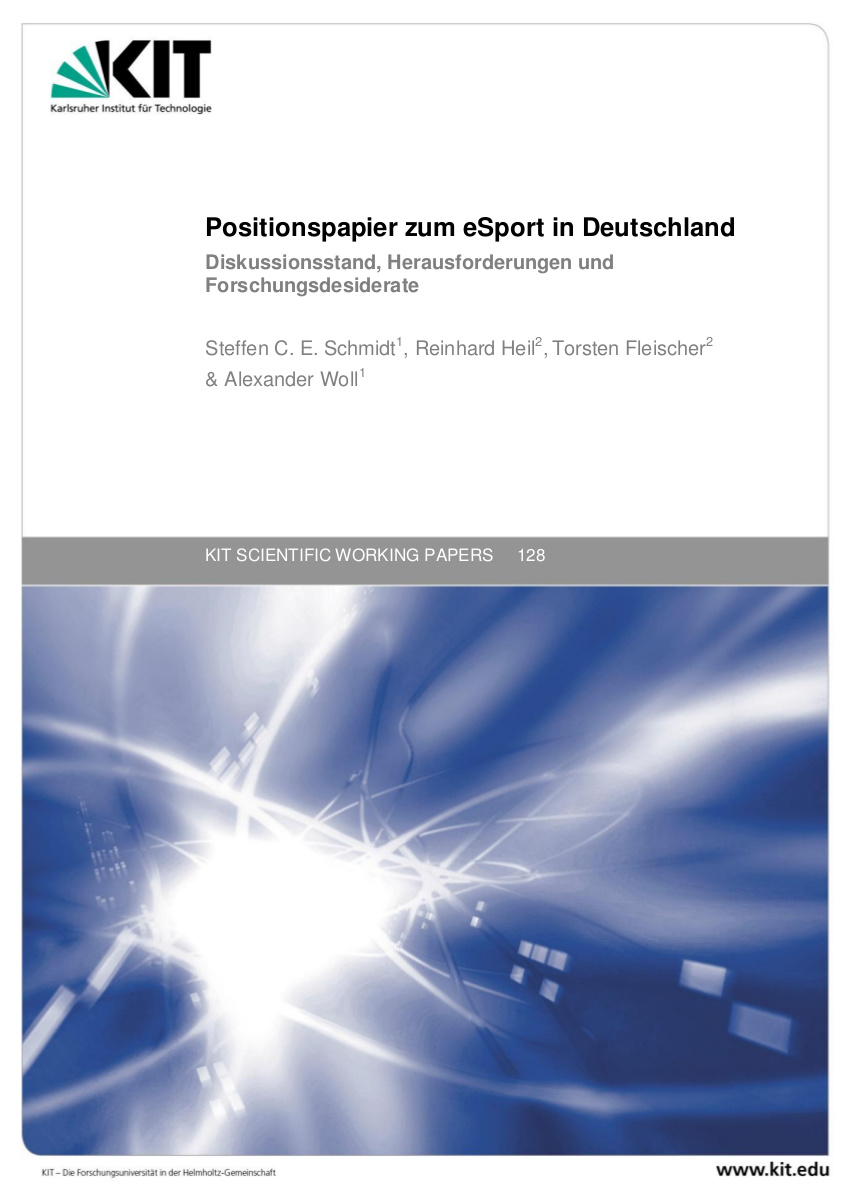Position paper on e-sports published
In 2017, Federal Chancellor Angela Merkel opened “gamescom”, the largest fair for digital games, with the words: “Computer and video games have become an established part of everyday life.” According to Chancellor Merkel, digital games are a cultural asset. The German grand coalition even included the promotion of the industry in general and of electronic sports (e-sports) in particular with an “Olympic perspective” in their coalition agreement.
Sport or not a sport?
This resulted in an intensive discussion of the topic. The main focus is on the question whether this form of competition using computer or video games is really a sport. Apart from the societal recognition, this is also about obtaining charitable status and the related tax and subsidy benefits.
The current debate is presented in the recent “Position paper on e-sports in Germany”. The authors from the KIT Institute of Sports and Sports Science and ITAS have identified a number of open research questions. It is not yet sufficiently clear how, e.g., the respective network of actors is organized. Which conflicts of interests exist, which roles do, e.g., sports clubs and tax authorities, politics, and the industry play? But also: What are the impacts of e-sports on the general understanding of sport? Which are the related health effects? Do e-sports open up new possibilities for participation for disabled people? And how about equal opportunities?
Considerable need for advice
Despite the still unclear impacts on society, the economy, and technology, stakeholders are forced to take action. According to the authors’ diagnosis, this would pave the way for the future development of e-sports and sport in Germany and result in a considerable need for advice, which has to be based on a neutral, multi-perspective discussion. The authors advocate an intensified cooperation between sports sciences and technology assessment. This would have the potential to introduce new insights into the current political and regulatory discourse. (16.10.2019)
Bibliographic data:
Schmidt, Steffen C. E.; Heil, Reinhard; Fleischer, Torsten; Woll, Alexander
Positionspapier zum eSport in Deutschland: Diskussionsstand, Herausforderungen und Forschungsdesiderate. Karlsruhe: KIT 2019, 14 p., ISSN 2194-1629.
PDF download


